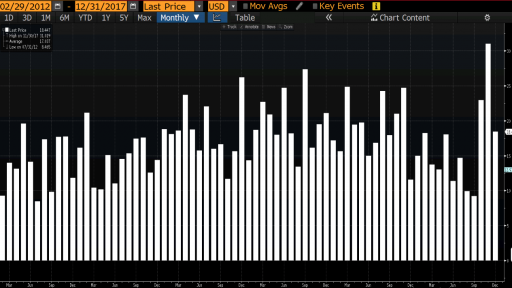- Home
- >
- Daily Accents
- >
- Household debt sees boom across the globe

Household debt sees boom across the globe

A decade after the global financial crisis, household debts are considered by many to be a problem of the past after having come down in the U.K. and many parts of the euro area. US consumers are back to borrowing like it’s 2006. November was a credit card orgy and December was about twice the year ago level. But in some corners of the globe—including Switzerland, Australia, Norway and Canada—large and rising household debt is percolating as an economic problem. Each of those four nations has more household debt—including mortgages, credit cards and car loans—today than the U.S. did at the height of last decade’s housing bubble.
At the top of the heap is Switzerland, where household debt has climbed to 127.5% of gross domestic product, according to data from Oxford Economics and the Bank for International Settlements. The International Monetary Fund has identified a 65% household debt-to-GDP ratio as a warning sign.
In all, 10 economies have debts above that threshold and rising fast, with the others including New Zealand, South Korea, Sweden, Thailand, Hong Kong and Finland.
In Switzerland, Australia, New Zealand and Canada, the household debt-to-GDP ratio has risen between five and 10 percentage points over the past three years, paces comparable to the U.S. in the run-up to the housing bubble. In Norway and South Korea they’re rising even faster.
The disparate economies on this debt list, though far apart geographically, actually have much in common. They are mostly wealthy with well-developed financial systems and avoided the worst of last decade’s global financial crisis. Their housing markets didn’t collapse dramatically. They weren’t the focus of fiscal debt crises. When nearly the entire world was in recession in 2009, Australia, New Zealand and South Korea managed to keep growing.
Compared with the euro area, the U.S., or Japan they looked like little outposts of stability.
But as economist Hyman Minsky once said, stability can be destabilizing. They attracted capital and their interest rates followed the rest of the world’s rates lower, sparking housing booms that are now a source of risk.
During the U.S. housing bubble, home prices nearly doubled from 2000 to their peak in 2006, according to the Case-Shiller home price index. In Canada, Australia, New Zealand and Sweden home prices have more than tripled by some measures.
Collectively, those 10 economies have $7.4 trillion in total economic output and a household debt stock about the same size. Taken as a whole, that’s more than the output of Germany or Japan. Moreover, many of them have a large stock of adjustable-rate mortgages that could suddenly become more costly to service should global interest rates rise.
Source: Bloomberg Pro Terminal
Jr Trader Alexander Kumanov
 Varchev Traders
Varchev Traders Read more:
If you think, we can improve that section,
please comment. Your oppinion is imortant for us.












